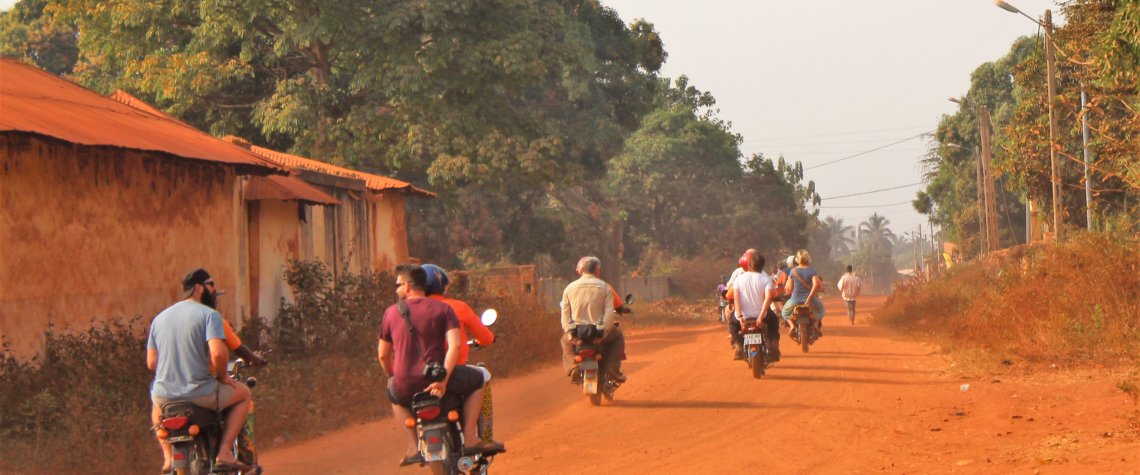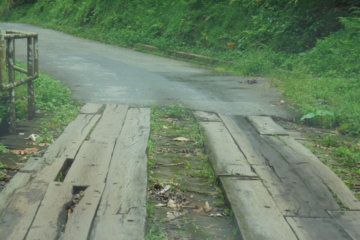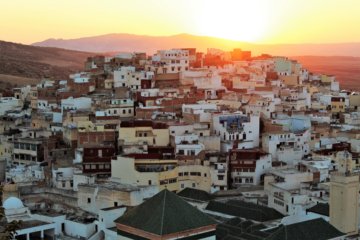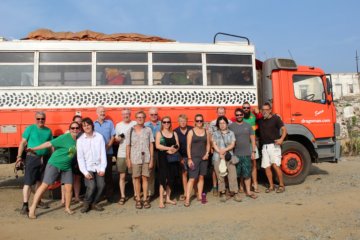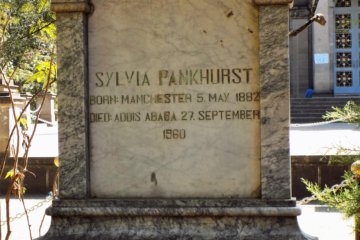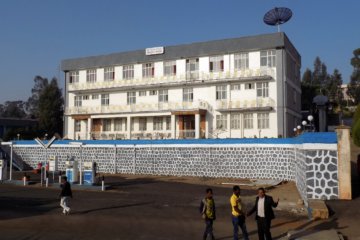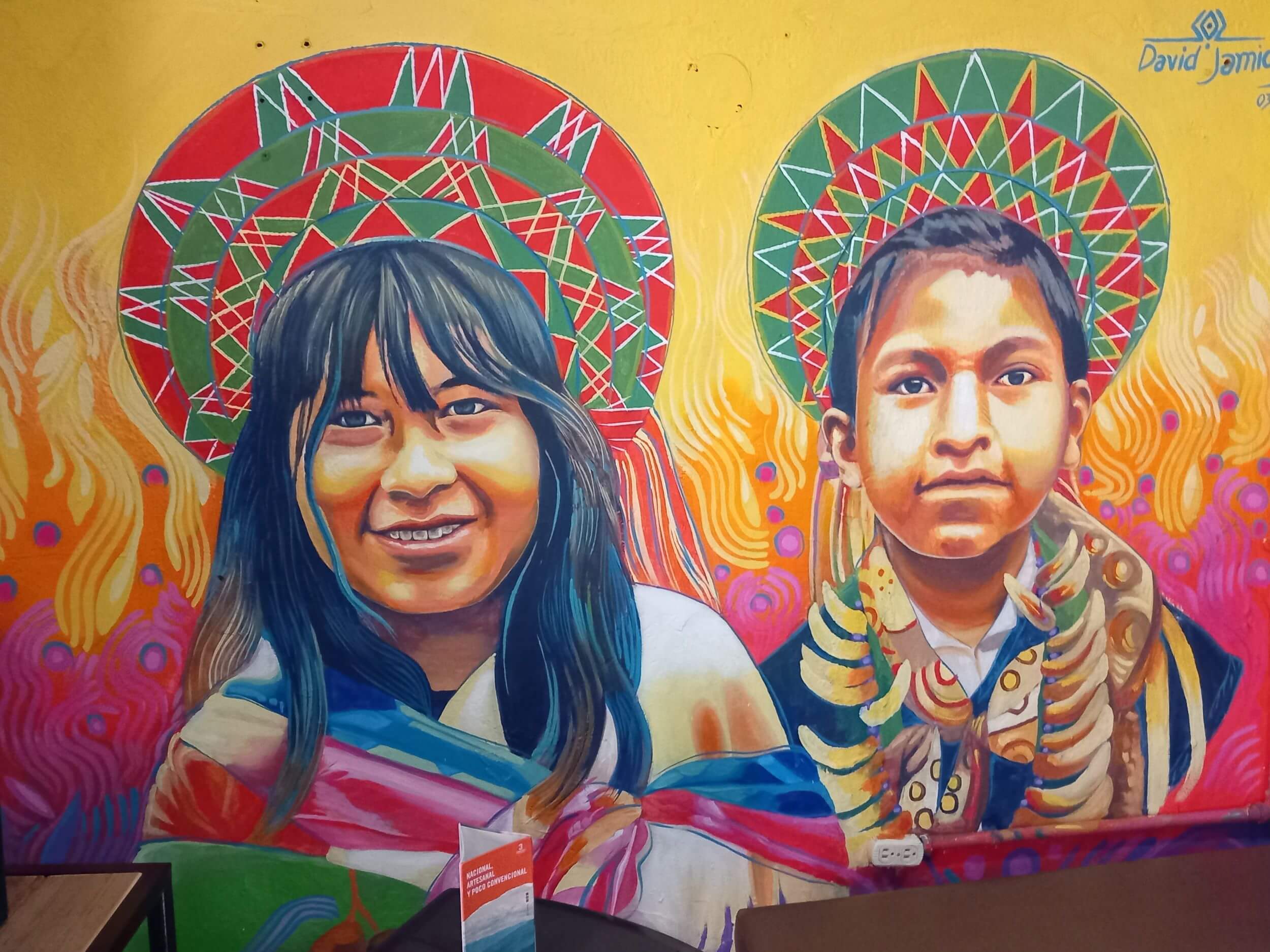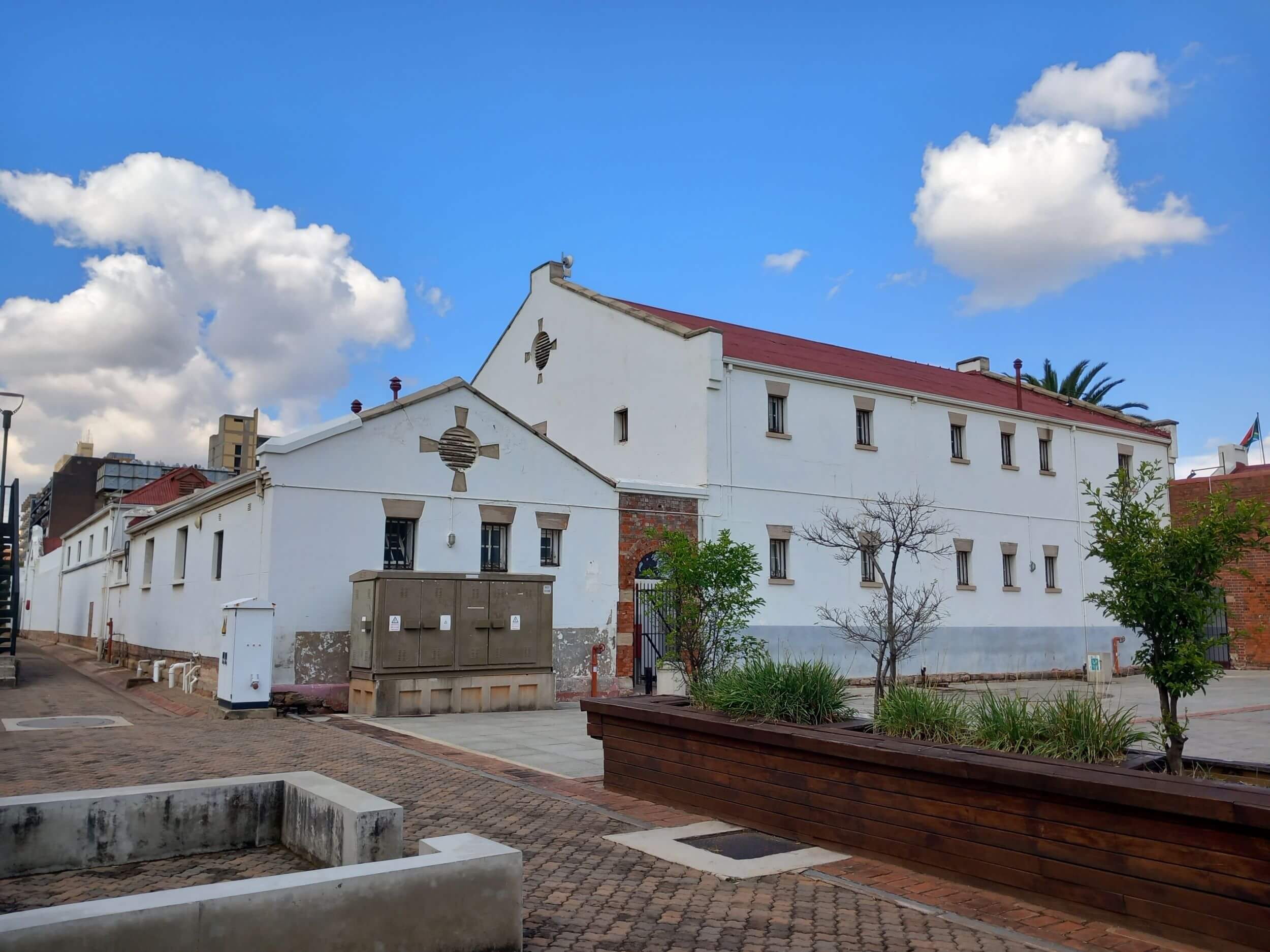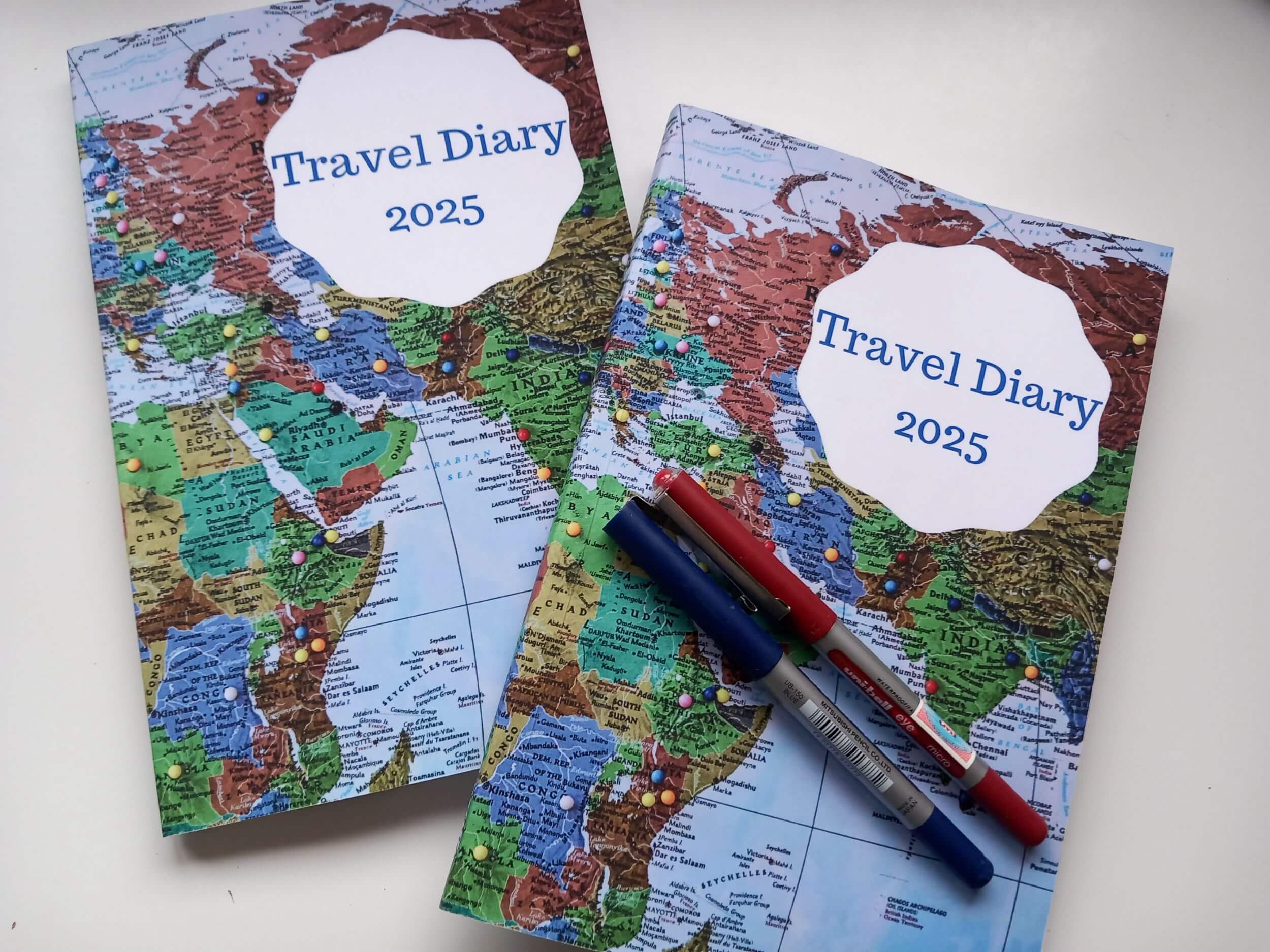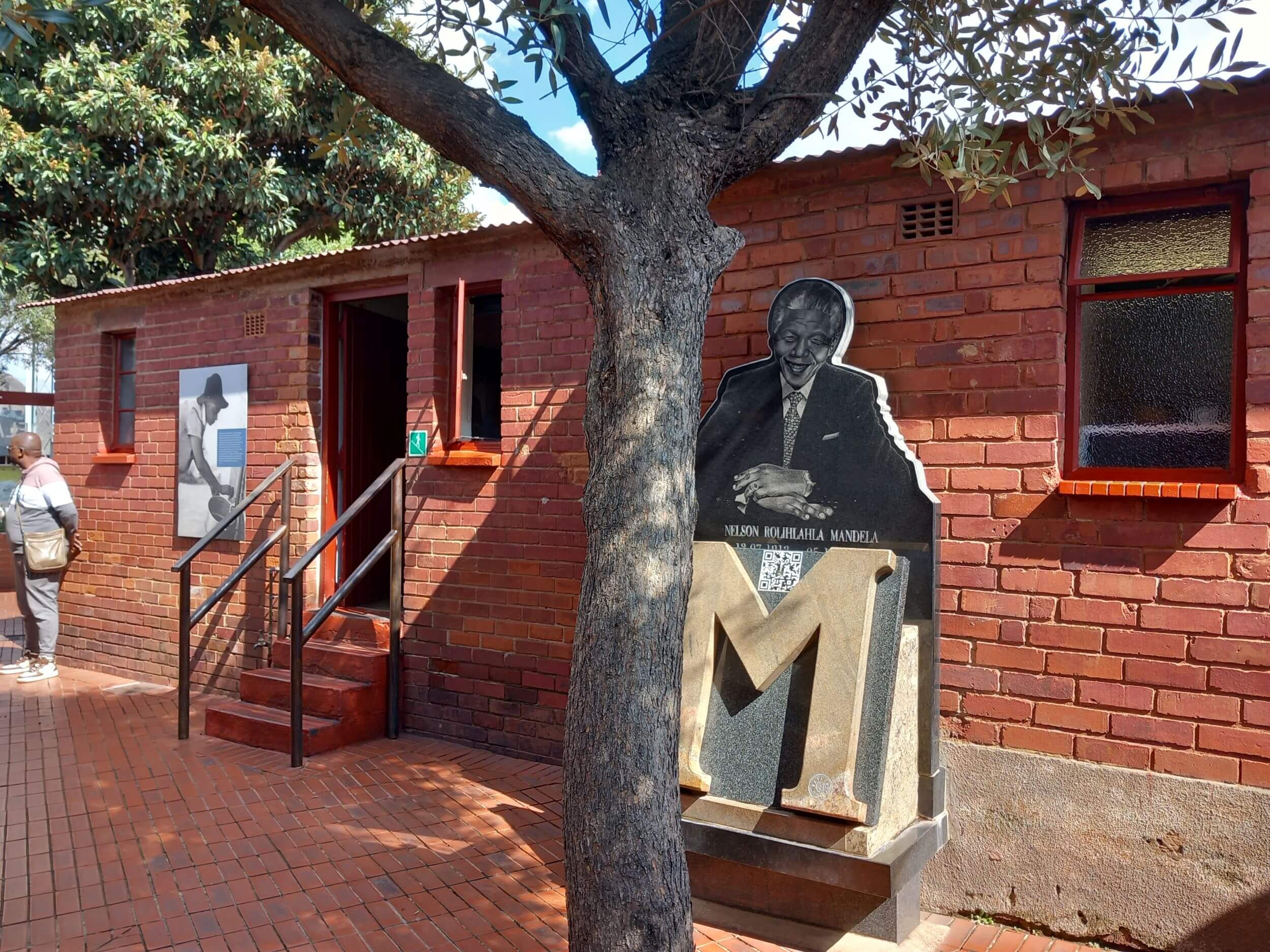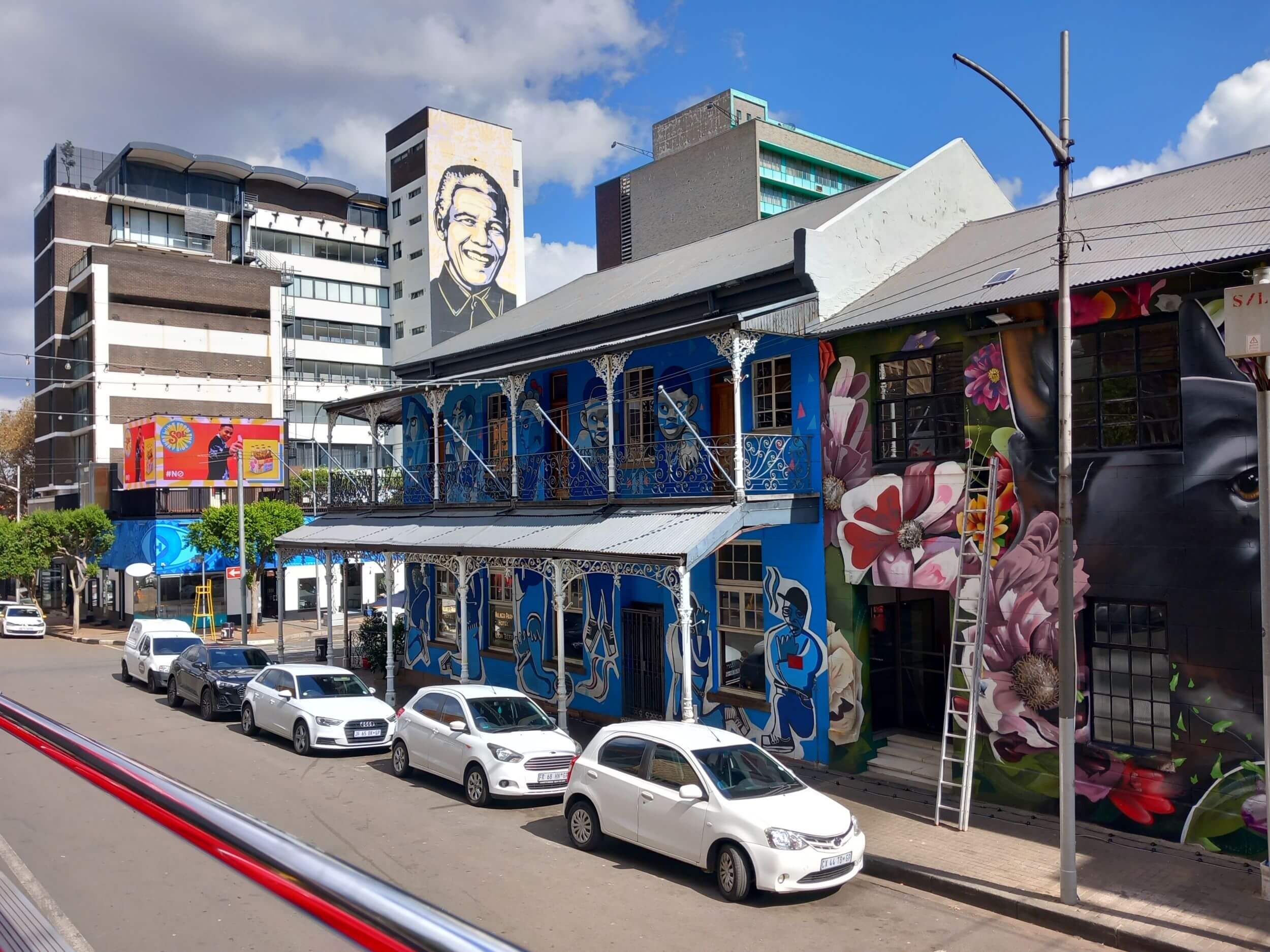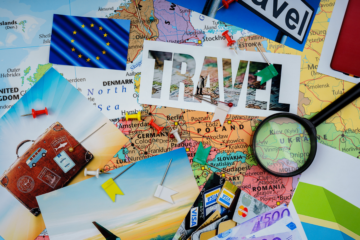We visited Abomey, Benin on our recent Dragoman tour of West Africa. It turned out to be a memorable couple of days.
In this article
History
Abomey is the former capital of the Kingdom of Dahomey, established in 1625 by the Fon people. It quickly developed into a powerful military and commercial empire which dominated the trade with European slave merchants on the Slave Coast until the late nineteenth century. The kings of Dahomey ordered the capture of saleable men, women and children in wars and raids. They then sold these people to the slave traders in return for knives, bayonets, firearms, fabrics and alcohol.
There were twelve rulers of the kingdom beginning with the first, Houegbadja, who built the Dahomey palaces in modern-day Abomey. Folklore says that Dahomey royalty were descended from a romance between Princess Aligbanon of Tado and a panther!
The Kingdom of Dahomey is famous for its artwork, particularly bas-reliefs on buildings, and for an all-female military unit dubbed the ‘Dahomey Amazons’ by European observers. The people of the kingdom practised voodoo.
The kingdom was invaded by France in 1892. It won many battles but it became a French protectorate in 1894 and eventually succumbed in 1900 to become a colony known as French Dahomey.
The nation won its independence from France in 1960 and was initially known as the Republic of Dahomey before changing to its present name of Benin.
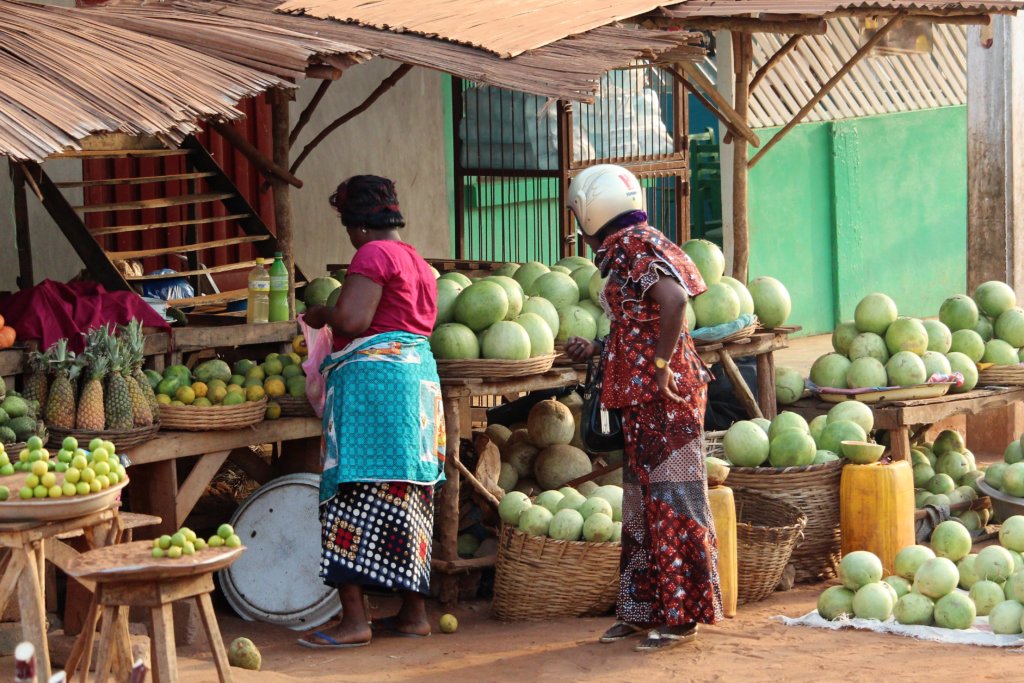
Dahomey Palace Today
Originally, there were 12 palaces, one for each king, built over a 99-acre site in modern-day Abomey. Most of these earthen structures had already fallen into ruin when, in 1984, a tornado hit those that remained standing and damaged them further. The following year, the palaces were declared a UNESCO World Heritage Site and restoration and renovation work was carried out with international help.
Now the site is the main attraction in Abomey. Two of the palaces, those of kings Ghézo and Glélé, now house a sprawling museum. Guided tours are available at a cost of CFA3000 each for foreigners. The museum’s exhibits include royal thrones, human skulls that were once used as musical instruments (yes, really!), fetish items, and King Ghézo’s throne which is mounted on four skulls belonging to defeated enemies of the state (I see a theme developing here!).
The tour of the museum finishes in the courtyard which is now used by local craftspeople to demonstrate and sell their wares. Several of us were tempted by the high-quality hand-made goods on offer. Mark and I gave in and bought a hammock which will be put to good use in the south of France this summer.
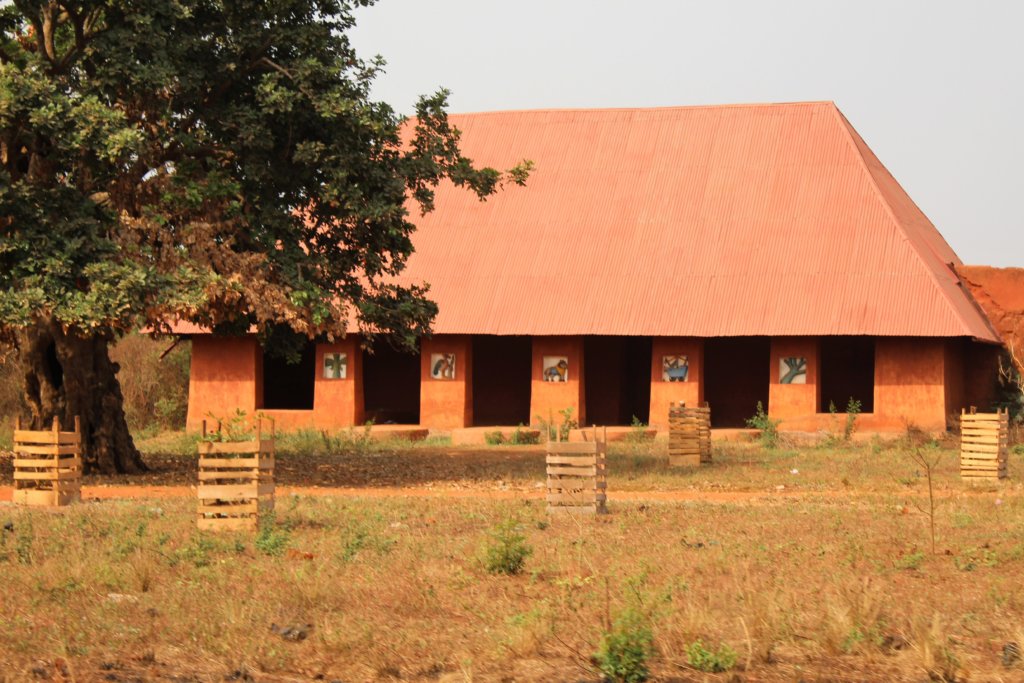
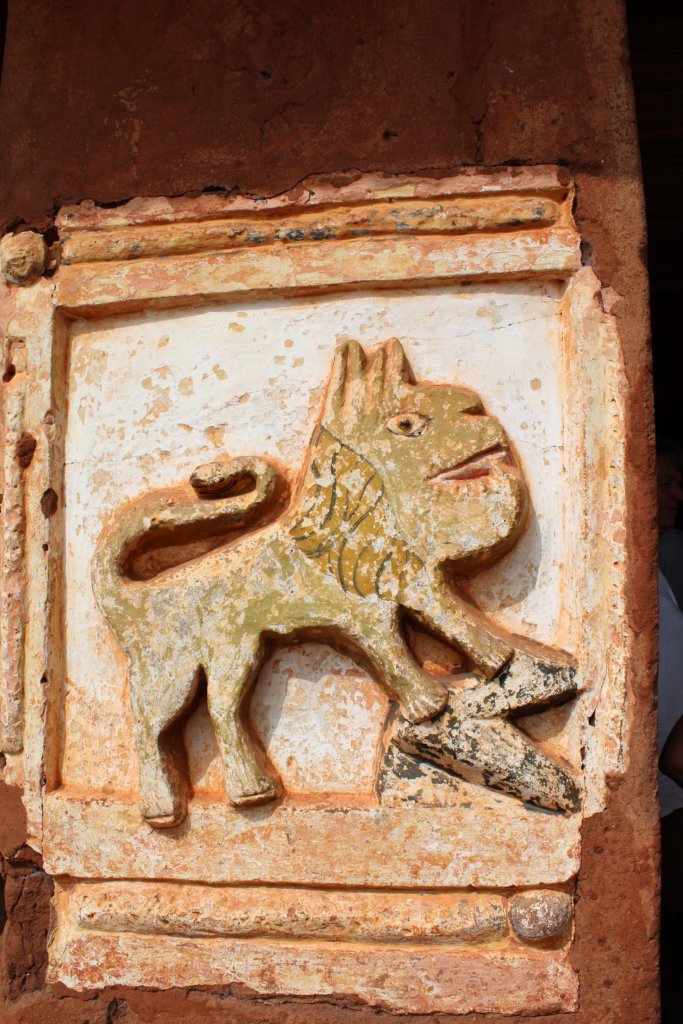
Our City Tour
The attractions of Abomey are quite spread out, so the best idea is to take a tour on moto-taxis (motorbike taxis). If, like me, you’re averse to this idea, there’s always a four-wheel option available! Our guide, Constance, introduced himself as a bonafide prince of the Dahomey Kingdom. It could be true; we were told later in the tour that Dahomey kings traditionally had 41 wives and countless children!
Our first stop of the morning was to see the old city boundary. At the time the palaces were built, the town was surrounded by a mud wall 10 km in circumference. The wall was pierced by ten gates and protected by a ditch two metres deep filled with prickly acacia plants. What we were looking at, though, was a ditch filled with rubbish, the wall having long since disappeared!
We then stopped at a family blacksmith business (I’m sure they were related to our guide!) where Constance explained to us about the making of weapons, utensils and tools. From there, it was back on the bikes (or in the car) to visit a voodoo fetish market. We weren’t supposed to take photos of the wares unless we paid handsomely for the privilege. I took some shots surreptitiously but won’t post them here as the images of animal heads, dead snakes, birds, tortoise shells, horses tails, etc. are far too gruesome. I only hope that Constance was telling us the truth when he said that the live puppies and kittens in cages were being sold as pets and not for use in some voodoo ritual!
A huge statue of King Gbehanzin, last king of Dahomey, was next on our itinerary. He is revered locally as the king who refused to sign any treaty with the French which would give up the independence of his country. The dates of his reign given on the base of the statue are 1890 – 1906. In reality, Dahomey became a French protectorate in 1894. Gbehanzin was exiled and a puppet king chosen by the French was put in place until he too was exiled in 1900.
Our last stop was at Dahomey Palace and Museum which I have described above. It was very interesting but very hot and sticky. I was grateful to be able to buy an ice lolly from a passing vendor!!
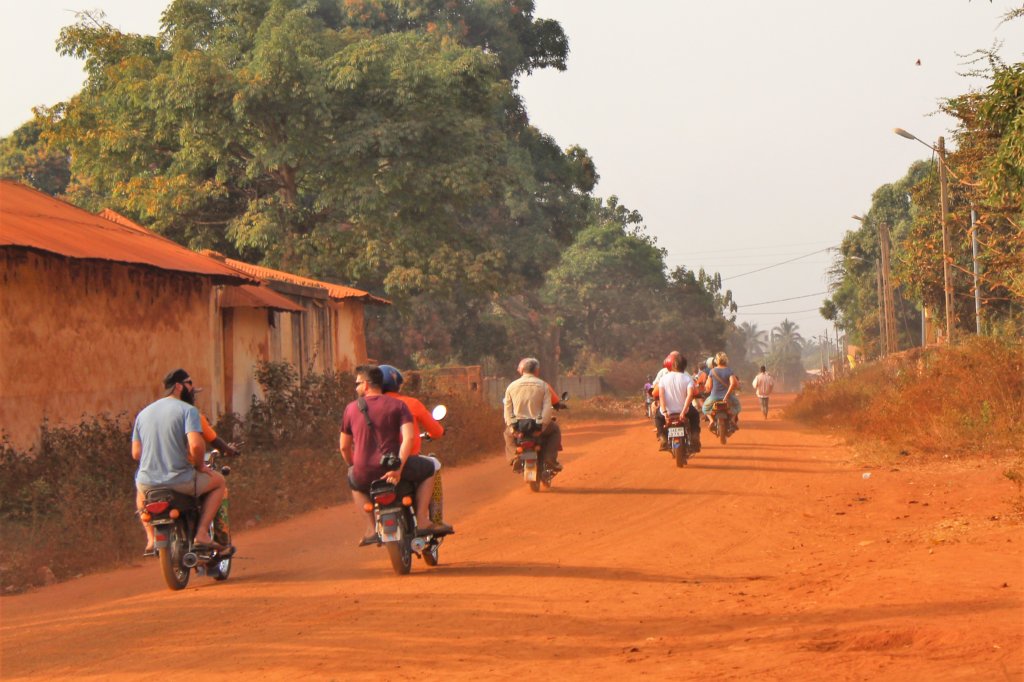
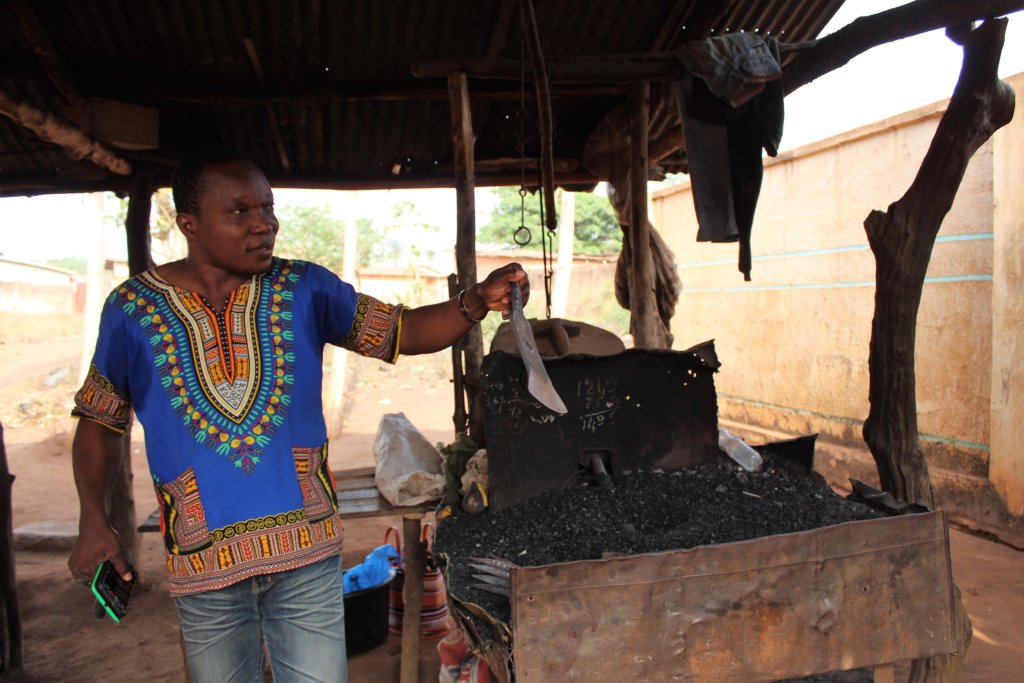
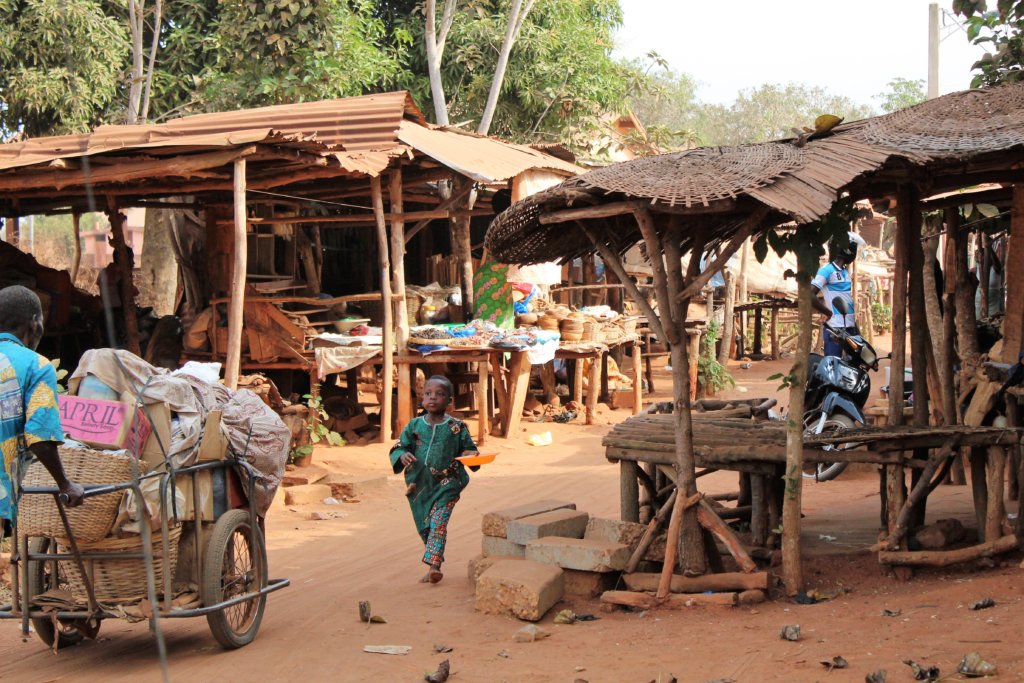
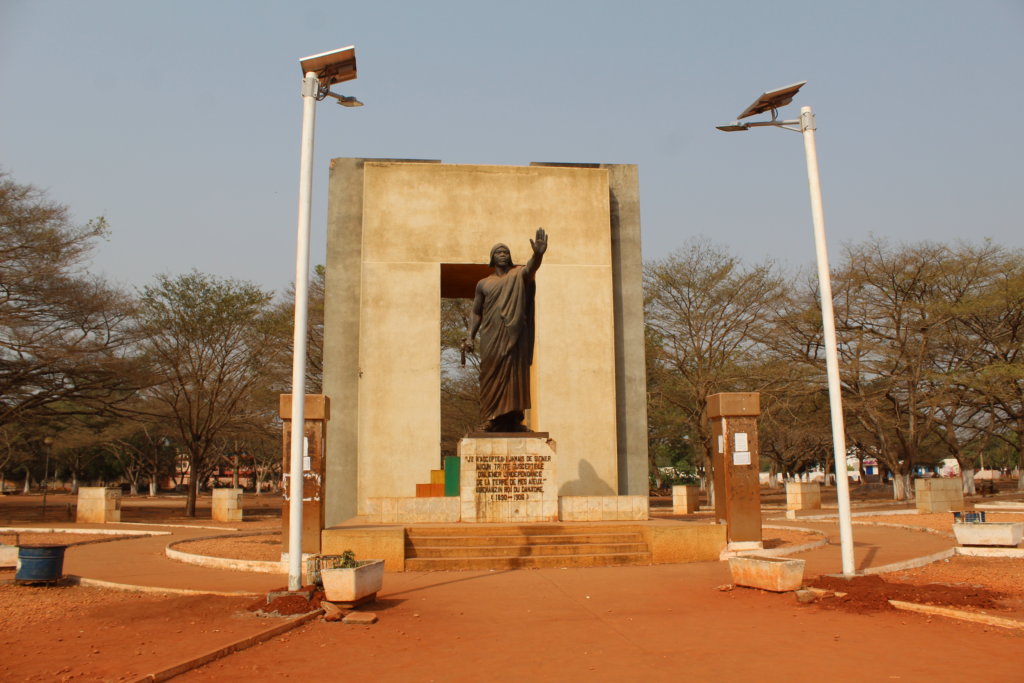
Where we Stayed
I’m sure there are other accommodation options available, but we stayed at Chez Monique. Monique herself seemed to have the monopoly in that area of town and had expanded to take over neighbouring buildings and others which were quite a way down the street. We should have been camping in her grounds, but the cost of an upgrade to a room with air-conditioning was minimal (£10 for two nights for the two of us), so most of our group went for it. It was something of a no-brainer after three consecutive nights bush camping!
The rooms were spacious, clean and comfortable. Monique had cold beer in the fridge, chicken and chips on the menu, a laundry service, and the ability to change any currency you wanted; it’s little surprise that some of the group didn’t venture far from home!
The best thing about Monique’s, though, is the garden. The grounds are extensive and are full of exotic plants interspersed with magnificent wooden sculptures ranging from huge elephants and giraffes to small tortoises and birds. It was a pleasure just to wander around and then relax in the shade with a drink.
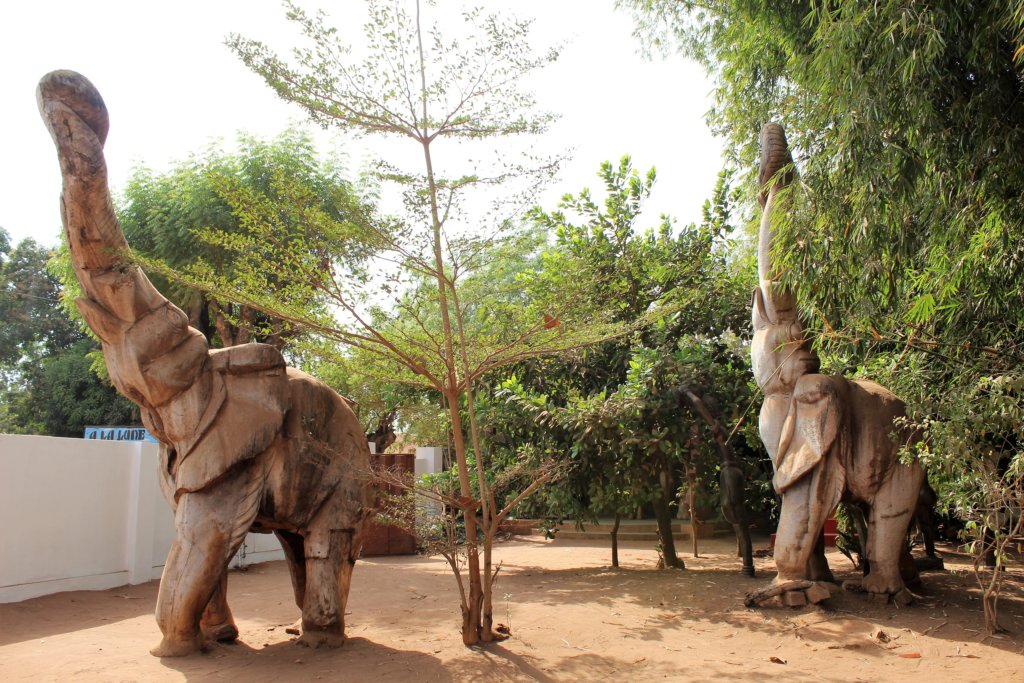
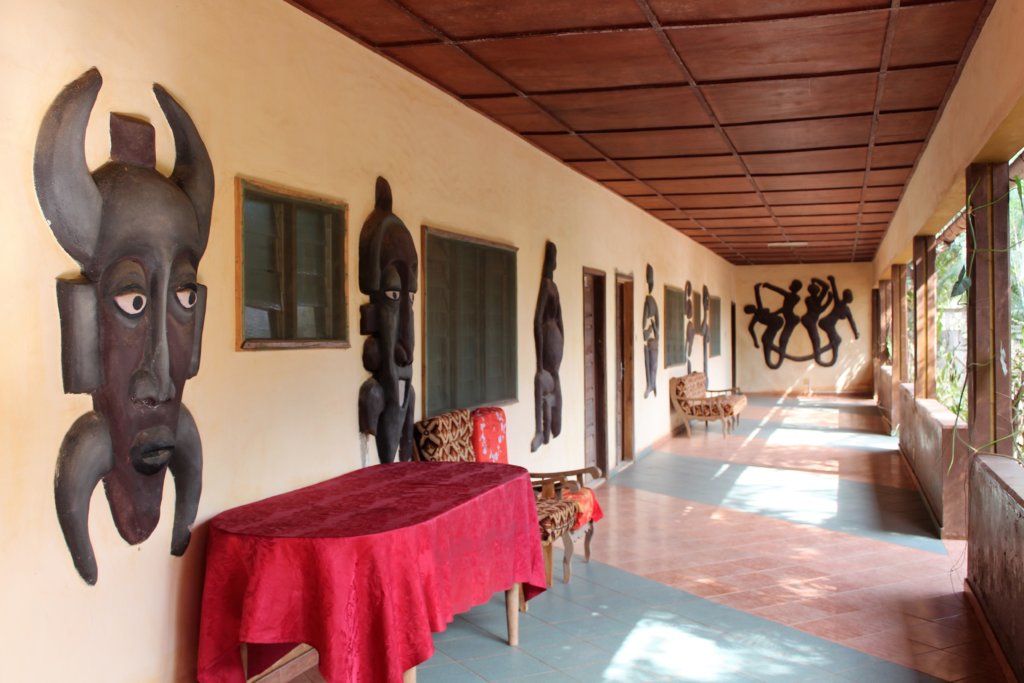
CLICK HERE TO READ MY BENIN TRAVEL GUIDE
READ MORE ABOUT BENIN!
BOOK YOUR OWN TOUR OF WEST AFRICA!
IF YOU LIKE WHAT YOU’VE READ, PIN IT!!
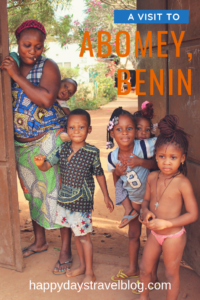
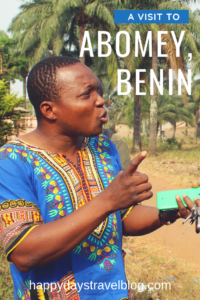
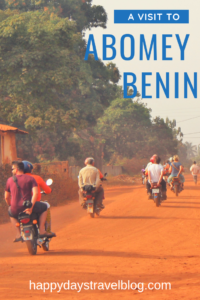
Disclosure: This post contains affiliate links. If you click through for more information, or to make a purchase, it may result in a small commission coming my way. Please note that there is no extra cost to you associated with this. Thank you so much for supporting my site.
Join our mailing list

Sign up to receive our monthly newsletter. Keep up with what we're doing and be the first to receive special offers and insider tips.

